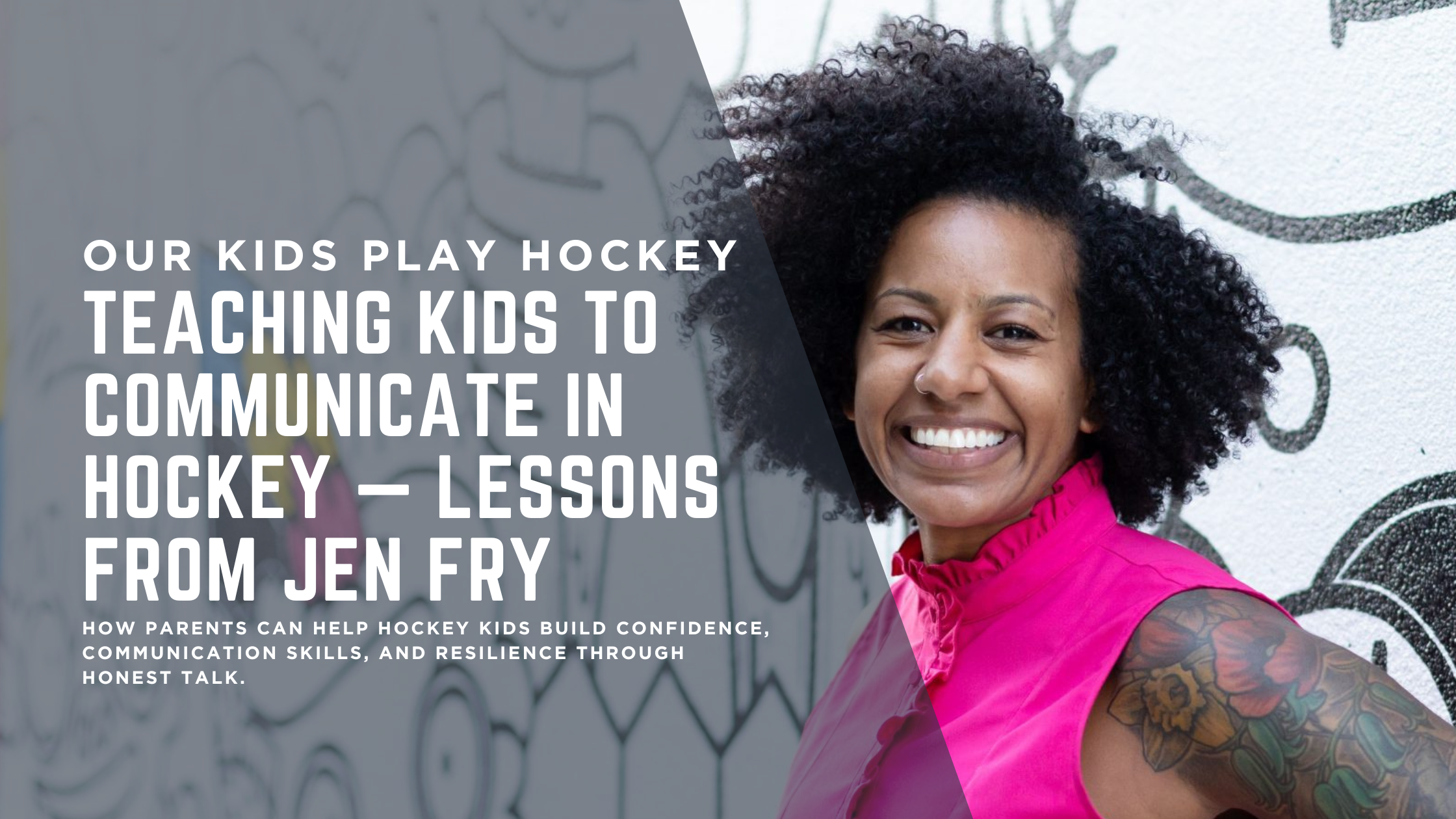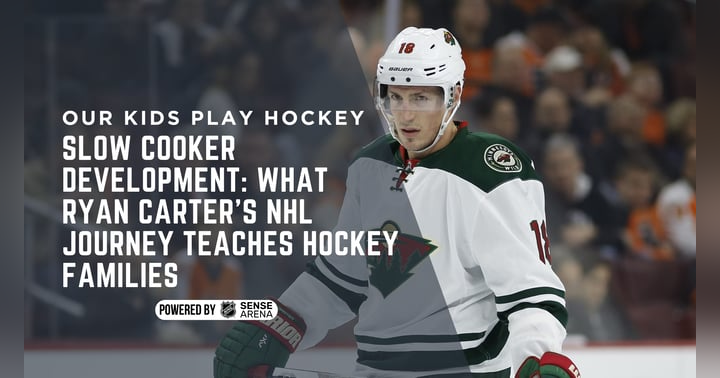Teaching Kids to Communicate in Hockey — Lessons from Jen Fry

Teaching Kids to Communicate in Hockey: Lessons Every Parent Should Hear
When your child sits on the bench or struggles to find their voice with a coach, it’s easy to jump in and “fix it.” But what if the best thing you can do is step back?
That’s the message from sports educator and inclusion strategist Jen Fry, who joined the Our Kids Play Hockey podcast to unpack one of the most misunderstood parts of youth sports: communication.
🧭 The Real Goal: Building Communicators, Not Just Competitors
As parents, we often focus on skill drills, extra lessons, and stats. But Jen reminds us that the most valuable skill your child can develop isn’t a slapshot — it’s self-advocacy.
Kids who learn to communicate with coaches, handle feedback, and express themselves respectfully are better prepared for life far beyond hockey. “If they can’t advocate for themselves at 9 or 10,” Jen says, “how will they do it at 19 or 20 — or in a job interview?”
That means letting kids speak for themselves — and resisting the urge to “mama bear” every issue.
✍️ Why Parents Should Journal Before They Speak
Frustration comes with the territory of youth sports. You’re investing time, money, and emotion. But before confronting a coach or sending that text, Jen suggests one powerful step: journal first.
Write down how you feel, what you’ve observed, and what your child truly wants. This gives you time to release emotion and focus on the facts — not the frustration.
“Don’t push your feelings onto your kid,” Jen says. “Let them own the conversation.”
🧒 Start Early: Let Young Kids Use Their Voices
Many parents assume self-advocacy starts in high school. Jen challenges that idea: “Kids as young as six or seven can learn to say, ‘I don’t understand,’ or ‘Can you show me again?’”
By encouraging small moments of independence, parents build confident communicators who can handle hard conversations later — on the ice, in school, and in life.
⚖️ Coaches, Conflict, and Calm
Conflict isn’t bad — silence is.
In sports, avoiding tough talks only makes problems worse. Coaches who give specific feedback (“work on your puck control to earn more shifts”) help athletes grow, while vague feedback (“play better”) breeds resentment.
Parents can support this process by reinforcing respect and calm at home. When kids learn to hear “you need to improve” without feeling attacked, they’re gaining emotional maturity — not just hockey sense.
📱 The Communication Trap: Texts, Emails, and Group Chats
Jen warns families about digital miscommunication. Tone doesn’t translate over text, and emotions can spiral quickly. “If a conversation matters,” she says, “have it face-to-face.”
Coaches should set boundaries, and parents should respect them. Social media messages and midnight texts aren’t solutions — they’re sparks for more conflict.
💡 Takeaways for Every Hockey Parent
🗣️ Let your child speak for themselves — even when it’s messy.
📓 Write out your frustrations before you act on them.
🧊 Encourage your child to approach coaches with curiosity, not confrontation.
🤝 Remember: conflict handled well builds connection and trust.
🏒 Focus on life lessons, not line changes.
🏁 The Final Shift
The best hockey parents don’t solve every problem — they equip their kids to solve them.
When you let your child communicate, struggle, and learn through those tough locker room moments, you’re teaching something more valuable than scoring — you’re teaching resilience, empathy, and leadership.
💬 Want more insights like this? Subscribe to Our Kids Play Hockey wherever you listen to podcasts and join the conversation that’s shaping the next generation of hockey families.


